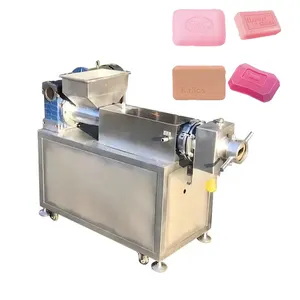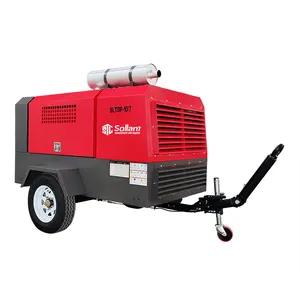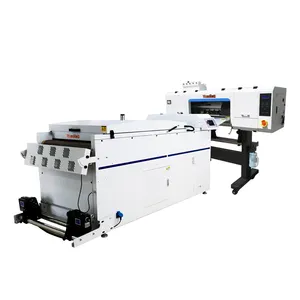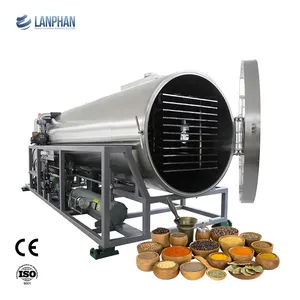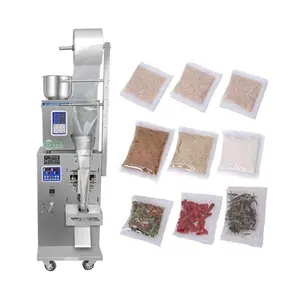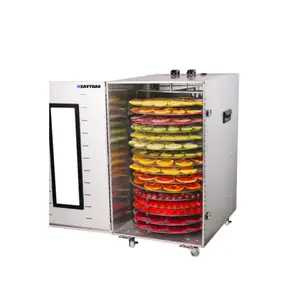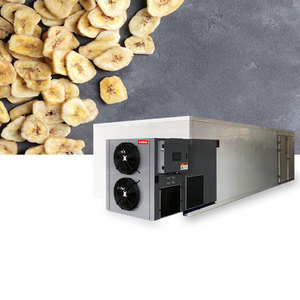Popular in your industry



































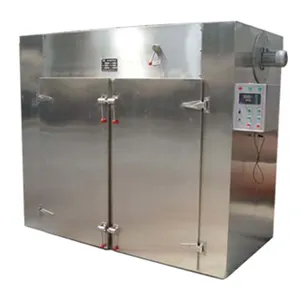










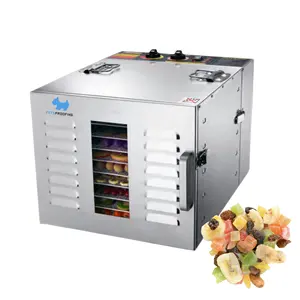











Related Searches:













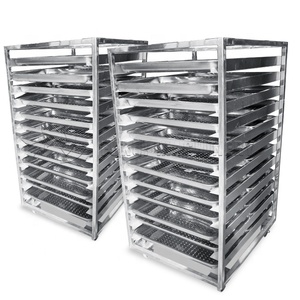

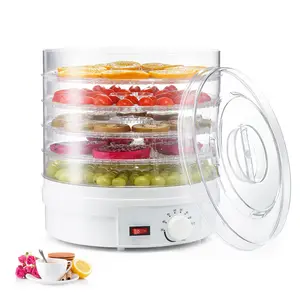






























































































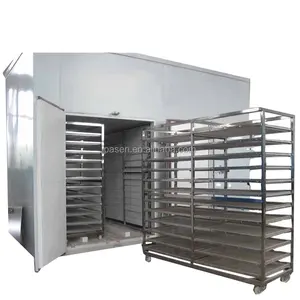





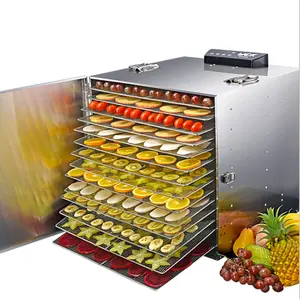











Top categories
About food dehydrator
Understanding Food Dehydrators
A food dehydrator is a device engineered to extract moisture from a plethora of foodstuffs, thereby prolonging their shelf life and preserving their quality for later use. It is an indispensable instrument for those engaged in the art of food preservation, enabling the long-term storage of fruits, vegetables, and meats without decay. Dehydration is achieved by applying heat to food items, which accelerates the evaporation of water. This can be accomplished through several techniques, including sun drying, air drying, or using a more sophisticated and controlled electric dehydrator.
At the core of a food dehydrator's functionality lies the meticulous control of temperature and airflow, ensuring a uniform drying environment. The device employs a heating element to elevate the temperature of the air, which is then consistently circulated around the food. The drying conditions can be tailored to the specific requirements of the food item in question and its water content. Certain models enhance this process with the inclusion of timers and thermostats, which prevent the risk of overheating the food.
Dehydrators enjoy popularity among health-conscious individuals who prefer dried fruits and vegetables as part of their diet. They are also integral to the operations of home kitchens, catering services, and the food processing industry, where the preservation of perishable items in bulk is crucial. The end products not only boast an extended shelf life but also largely maintain their nutritional value, offering a prudent option for those stocking up on seasonal produce or seeking a convenient, healthy snack.
Varieties of Food Dehydrators
Food dehydrators are available in a range of models to cater to diverse requirements and usage scenarios. Below are some prevalent types:
-
Tray Dehydrator: Characterized by stackable trays or shelves, this variant is optimal for evenly drying items like fruits and vegetables. Tray dehydrators are a common sight in domestic kitchens and small-scale food enterprises.
-
Commercial Dehydrator: Engineered for intensive usage, commercial dehydrators are more substantial, featuring numerous racks and higher wattage to expedite the drying of food in large volumes. They are typically utilized in restaurants, delicatessens, and other food-related businesses.
-
Solar Dehydrator: An eco-conscious choice, solar dehydrators harness the sun's energy for the drying process. Although less potent than other models, they offer an environmentally friendly and portable solution, ideal for remote locations or as a contingency during power shortages.
-
Under-counter Dehydrator: These dehydrators are designed to fit under a counter or within a kitchen cabinet, conserving space while still offering significant drying capacity. They are particularly suitable for compact kitchens or food establishments where floor area is at a premium.
-
Industrial Dehydrator: For mass drying needs, industrial dehydrators provide the utmost in capacity. They are built to withstand the demanding conditions of large-scale food processing operations or specialized drying facilities.
Selecting the Right Food Dehydrator
Choosing the ideal food dehydrator requires careful consideration of several factors that align with your specific business or personal needs. Key aspects to evaluate include the types of food you intend to dry, the scale of production, spatial constraints, and preferred features:
-
Capacity: Assess the volume of food you need to dry simultaneously. Larger capacities are indispensable for commercial settings or food shops, whereas smaller units may be adequate for domestic use or modest ventures.
-
Temperature Range: Different foods necessitate varying heat levels and drying durations. Opt for a dehydrator with a versatile temperature range to meet your particular requirements.
-
Airflow: Airflow is crucial; some items dry more efficiently with horizontal airflow, while others benefit from vertical airflow. Proper airflow also influences drying time and prevents internal moisture accumulation.
-
Space and Portability: For operations that require mobility or have limited space, a compact, lightweight yet durable unit is beneficial.
-
Ease of Cleaning: In food preparation, cleanliness is essential. Seek models with detachable trays and liners that facilitate easy cleaning and upkeep.
Food Dehydrators on Alibaba.com
Alibaba.com distinguishes itself as a global marketplace offering a vast selection of dehydrators suitable for a range of applications, from home-based fruit preservation to industrial-scale production. The platform caters to various sectors, including food processing, hospitality, and retail, connecting businesses with suppliers that can meet their specific needs.
The user-friendly interface of Alibaba.com streamlines the procurement process, with tools to filter by key selling points such as efficiency, multifunctionality, and sustainability. Alibaba.com also provides buyer support through services like Trade Assurance, which secures transactions and offers peace of mind regarding order fulfillment.
Businesses sourcing from Alibaba.com gain access to a worldwide network of suppliers offering machines made from robust materials like stainless steel and equipped with advanced features such as high efficiency or energy-saving capabilities. Whether outfitting a quaint café with an occasional need for dried fruit or a large-scale food processing facility in need of sturdy dehydrating solutions, Alibaba.com simplifies the purchasing journey with a broad array of options.
Frequently Asked Questions About Food Dehydrators
What is the typical capacity of a commercial dehydrator?
Commercial dehydrators vary in capacity, typically offering 10 to 100 square feet of tray space. It's crucial to consider the volume of produce to be processed when selecting a suitable model.
How does a heat pump dehydrator differ from other models?
A heat pump dehydrator employs a refrigerant system to cool the air and condense moisture, which is then drained, making it a more energy-efficient option compared to conventional convection dehydrators that use heating elements and fans.
Is it possible to dehydrate all types of food with a dehydrator?
While most dehydrators are versatile enough to dry a wide array of food items, including fruits, vegetables, meats, and herbs, drying times and suitability may vary depending on the dehydrator's specific features.
Are there dehydrators capable of both hot and cold processing?
Certain dehydrators come equipped with adjustable temperature settings, enabling them to handle both hot and cold drying processes for a variety of food types.
What is the average duration for dehydrating food in a dehydrator?
The time required to dehydrate food can greatly differ based on the food's nature, slice thickness, water content, and the dehydrator model used. Manufacturer guidelines should be consulted for precise timing.
What distinguishes stackable from shelf tray dehydrators?
Stackable dehydrators feature trays that can be piled, providing more vertical space for dehydrating larger food quantities. Shelf tray dehydrators, on the other hand, usually have fewer trays and are more suited for larger, flatter items like jerky.
Can a business customize a commercial dehydrator?
Many Alibaba.com suppliers offer customization for commercial dehydrators, allowing businesses to adapt the machinery to specific operational or branding needs.
What considerations differ when choosing a dehydrator for home versus commercial use?
For home use, factors like user-friendliness, noise levels, and energy consumption may take precedence. In a commercial context, durability, speed, and the ability to endure frequent usage are more critical.
Is it feasible to find an eco-friendly dehydrator?
Eco-friendly dehydrators are indeed available, with some models designed to be energy-efficient or incorporate features that reduce operational waste. Look for energy efficiency as a highlighted feature in product specifications.
How should I determine the correct temperature settings for different food items?
Appropriate temperature settings for dehydrating various food items can be ascertained by consulting the manufacturer's recommended temperatures or by considering the water content of the food to be dehydrated.
What maintenance is required for a commercial dehydrator?
Commercial dehydrator maintenance typically involves routine cleaning to prevent mold or bacterial contamination, inspecting and replacing any faulty or worn components, and ensuring the unit's air circulation is unimpeded.
What safety precautions should be taken when operating a commercial dehydrator?
When using a commercial dehydrator, safety measures include ensuring adequate ventilation in the operating area, avoiding overfilling the appliance to prevent overheating, and adhering to the manufacturer's operational guidelines.
How do I choose between a motorized and pressurized dehydrator?
Deciding between a motorized and pressurized dehydrator hinges on the volume of produce to be dried and the level of automation desired. Motorized dehydrators are typically more suitable for larger operations with regular production schedules.
Can dehydrators be used for making pet treats or snacks?
Indeed, many dehydrators are sufficiently versatile to craft pet treats or snacks with minimal additives, thanks to adjustable temperature controls that cater to various recipes and treat sizes.

